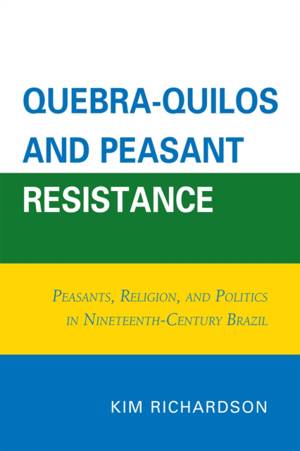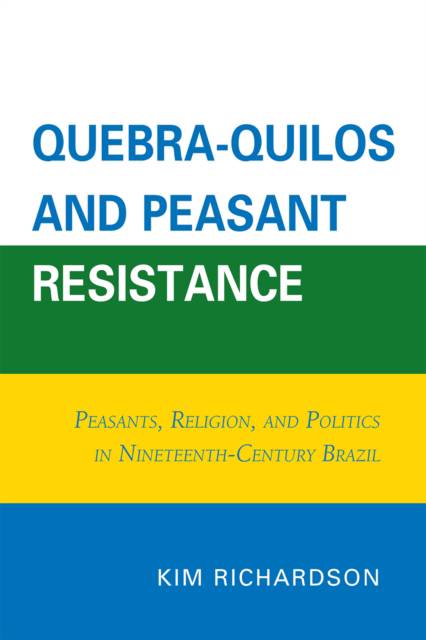
- Afhalen na 1 uur in een winkel met voorraad
- Gratis thuislevering in België vanaf € 30
- Ruim aanbod met 7 miljoen producten
- Afhalen na 1 uur in een winkel met voorraad
- Gratis thuislevering in België vanaf € 30
- Ruim aanbod met 7 miljoen producten
Zoeken
Quebra-Quilos and Peasant Resistance
Peasants, Religion, and Politics in Nineteenth-Century Brazil
Kim Richardson
Paperback | Engels
€ 76,45
+ 152 punten
Uitvoering
Omschrijving
In 1874 and 1875, Brazilian peasants in the Northeastern region of Brazil rose up in rebellion, destroying the weights and measures of the new metric system implemented by the government from Rio de Janeiro. The authorities quickly dubbed this the Quebra-Quilos or the "Break the Scales" uprising. Richardson's analysis of the uprising explores its underlying causes: increased taxes, rising costs of foodstuffs, the forced implementation of this new metric system, fear of being drafted into the military and, finally, the imprisonment of two of the leading bishops in Brazil, known as the Religious Question. Quebra-Quilos and Peasant Resistance explores the complicated, multi-faceted uprising. The book covers the causes and results of an economy gone awry, governmental attempts at modernization, and the inevitable nineteenth-century conflicts over church-state relations.
Specificaties
Betrokkenen
- Auteur(s):
- Uitgeverij:
Inhoud
- Aantal bladzijden:
- 170
- Taal:
- Engels
Eigenschappen
- Productcode (EAN):
- 9780761853053
- Verschijningsdatum:
- 17/12/2010
- Uitvoering:
- Paperback
- Formaat:
- Trade paperback (VS)
- Afmetingen:
- 150 mm x 226 mm
- Gewicht:
- 258 g

Alleen bij Standaard Boekhandel
+ 152 punten op je klantenkaart van Standaard Boekhandel
Beoordelingen
We publiceren alleen reviews die voldoen aan de voorwaarden voor reviews. Bekijk onze voorwaarden voor reviews.








